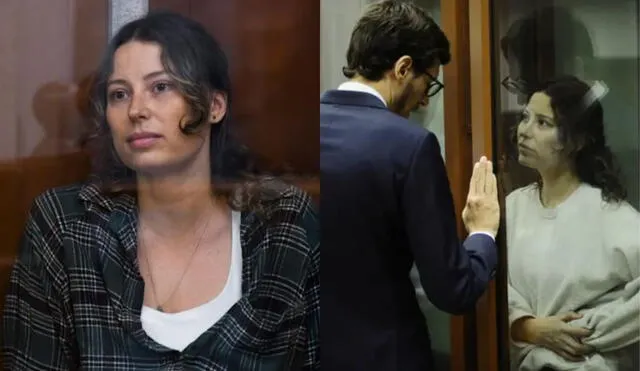Ksenia Karelina Freed in U.S.-Russia Prisoner Swap
Russian-American citizen Ksenia Karelina, who was convicted of treason in Russia, has been released after more than a year in detention. Her return was made possible through a deal negotiated by senior U.S. and Russian officials.

Ksenia Karelina, a dual Russian-American citizen sentenced in Russia to 12 years in prison for treason, was freed on Thursday as part of a prisoner exchange between the United States and Russia. Karelina, who was detained in January 2024 during a family visit, had been accused of supporting Ukraine through a small donation to a U.S.-based charity organization.
Secretary of State Marco Rubio confirmed the news on his account on X, stating that the American citizen was already on a flight back home. According to Rubio, President Trump played a key role in the negotiations that led to her release, as part of his administration’s efforts to repatriate wrongfully detained American citizens abroad.
A Swap with Diplomatic Implications
The exchange took place in Abu Dhabi and was brokered by CIA Director John Ratcliffe. In return for Karelina’s release, the United States handed over Arthur Petrov, a Russian-German citizen accused of smuggling, money laundering, and wire fraud. Petrov had been arrested in Cyprus and extradited to the U.S. in 2024 for allegedly exporting military technology to Russia.
According to sources familiar with the matter, negotiations intensified following the visit to Washington of Kirill Dmitriev, a close adviser to Vladimir Putin. The talks ran parallel to diplomatic meetings in Istanbul, where officials from both countries discussed consular operations and the war in Ukraine.
The government of the United Arab Emirates, which facilitated the swap, emphasized the importance of such agreements as steps toward de-escalation and international dialogue. The UAE Ministry of Foreign Affairs stated that the choice of Abu Dhabi as the exchange site reflects both powers’ trust in the UAE’s neutrality.
Although rare, these types of exchanges have increased since Trump’s return to office. Karelina’s release marks the second such case this year, following the release of teacher Marc Fogel in February. Both cases have been highlighted by the Trump administration as evidence of its ability to negotiate with adversarial governments.
The Karelina Case: A Controversial Conviction
Karelina, an amateur dancer and resident of Los Angeles, became a U.S. citizen in 2021. She was arrested shortly after entering Russia in early 2024 to visit her family, including her 90-year-old grandmother. The U.S. government reportedly did not learn of her arrest until February 8.
She was convicted of treason for donating just over $50 to a U.S.-based charity that supported Ukraine. Her trial took place in the same Russian court where journalist Evan Gershkovich was convicted of espionage and sentenced to 16 years in 2023.
Her partner, Chris van Heerden, publicly thanked President Trump, as well as a network of influential figures who advocated for her release. Among them were UFC CEO Dana White and filmmaker Peter Berg, who brought her story to Trump’s attention through the gym where Van Heerden trains.
Karelina’s release comes amid broader diplomatic exchanges and similar cases. More than a dozen U.S. citizens remain detained in Russia, including Stephen Hubbard, 72, who was convicted of allegedly fighting as a mercenary in Ukraine. The U.S. government continues to push for their release.












